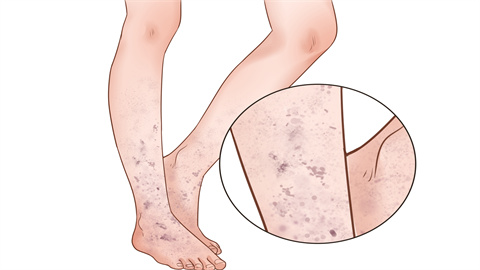How to Repair Dilated Capillaries
Generally, telangiectasia (dilation of small blood vessels) may be caused by long-term sun exposure, temperature changes (hot and cold stimulation), hormonal fluctuations, rosacea, cirrhosis, and other factors. It is recommended to seek timely medical consultation, identify the underlying cause, and proceed with general treatments or medication under a physician's guidance. Specific explanations are as follows:

1. Long-term sun exposure: Ultraviolet radiation can damage the skin barrier, leading to reduced elasticity and dilation of capillaries. Practice proper sun protection when outdoors, such as applying sunscreen, wearing hats, and using umbrellas. Use skincare products containing vitamin C and niacinamide to help repair the skin barrier and enhance capillary elasticity.
2. Temperature changes: Frequent alternating exposure to hot and cold temperatures can cause repeated contraction and dilation of capillaries, eventually leading to loss of elasticity. Avoid sudden exposure to extremely cold or hot environments. Use warm water when washing your face, keep your face warm during winter, and avoid prolonged exposure to cold air in summer to reduce capillary stimulation.
3. Hormonal changes: Fluctuations in hormone levels due to pregnancy or oral contraceptive use can lead to capillary dilation. During pregnancy, no special treatment is usually required, as the condition may gradually improve after delivery. If caused by medication, consult your doctor to adjust the treatment plan. When necessary, medications such as mucopolysaccharide polysulfate cream, compound heparin sodium allantoin gel, or escin cream may be used to promote capillary repair.
4. Rosacea: Skin barrier damage and inflammatory stimulation can cause capillary dilation accompanied by facial redness and papules. Patients should follow medical advice to use medications such as metronidazole gel, azelaic acid cream, or tretinoin gel to reduce inflammation and repair the skin.
5. Cirrhosis: Impaired liver function reduces estrogen inactivation, leading to systemic capillary dilation. The primary disease should be treated first, and medications such as entecavir tablets, compound glycyrrhizin tablets, or silymarin capsules may be used under medical guidance to protect liver function.
In daily life, avoid frequent exfoliation and using irritating skincare products to reduce skin damage. Maintain regular sleep patterns and avoid staying up late to promote skin metabolism. Follow a light diet and consume more fresh fruits and vegetables rich in vitamins to provide nutritional support for skin repair.





